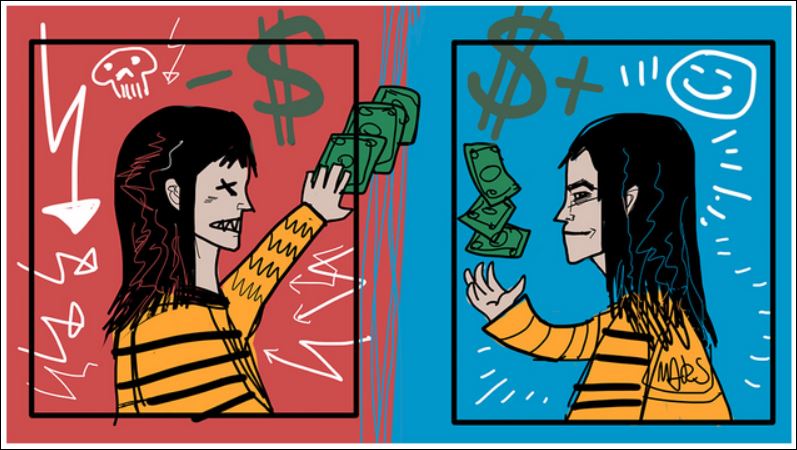
By Mars Dorian, {grow} Contributing Columnist
In an eye-opening post, Francisco Rosales demonstrated how the organic reach of his content on Facebook dropped 90 percent in one week, a trend he fears will portend a future where businesses are going to have to count more and more on paid media and less on true organic reach. Christopher Penn expressed the same sentiment on the Shift Communications blog when he claimed “A major part of surviving the Content Shock will be greatly improving owned media.”
Say it ain’t so. Isn’t social media about the flowers, honey and singing unicorns of free and organic content?
At first I thought these ideas were ludicrous, but then I began to consider the impact in my own circles.
Paying to get paid
I recently met up with some online entrepreneur friends who told me they suffered big dips in sales due to Facebook’s algorithm changes. They had built massively successful fanpages but saw interactions dry up over the past few weeks. They now realize they are going to have to pay Facebook to get visibility for their content.
 I felt a chill when they told me how much money they lost due to a simple change from Facebook. And now with Twitter being public, it’s only a matter of time before something similar happens there, right?
I felt a chill when they told me how much money they lost due to a simple change from Facebook. And now with Twitter being public, it’s only a matter of time before something similar happens there, right?
The idea of paying for fans to see your work feels like a dystopian scenario from a young adult sci-fi novel.
I’m a freelance illustrator and designer who works with folks in the social media / startup / onlinepreneur niches. So far, I haven’t spent a cent on acquiring new clients. Three years ago, I simply started sharing my work on Facebook, Tumblr and Twitter (and of course with my posts on {grow}). A little exposure, a little sharing from people who loved my art — That was enough to kickstart my career.
Right now, I’m still resisting the notion that organic reach is on its way out. Here’s why.
The product is the best marketing.
Seth Godin famously said that slapping remarkable advertising on an unremarkable product is a relic of the TV Age. It doesn’t work for the Internet. He claims that most successful companies of the last decade (initially) didn’t pay for any advertising because their remarkability was baked into their product. Think of companies like Amazon, Google, Facebook and Twitter.
 A favorite example is Dropbox. Their subscriber base skyrocketed after they offered free cloud space for any subscriber that attracted another subscriber. Heck, I got five people to subscribe because I wanted that free space! Dropbox eschewed traditional marketing and baked it right into their product. And now the company’s worth $10 billion.
A favorite example is Dropbox. Their subscriber base skyrocketed after they offered free cloud space for any subscriber that attracted another subscriber. Heck, I got five people to subscribe because I wanted that free space! Dropbox eschewed traditional marketing and baked it right into their product. And now the company’s worth $10 billion.
Word of mouth is the best advertising.
I’m a big advocate of WOM. Because WOM works long-term, while any kind of paid advertising boosts only short-term sales. A lot of people applauded the Old Spice campaign that went viral years ago, and it sure boosted short-term sales, but what did it do long-term?
The company has to keep creating over-the-top commercials because they don’t have a remarkable product that sells itself. Nor do they treat their customers beyond the sell, as Gary Vaynerchuk pointed out, so you have no ongoing relationship between client and product. You have to start from scratch every time.
I not only make sure my clients get the best service possible, I also keep touch. I follow them on social media channels and help them out even when I don’t get paid for it. Because I believe if I treat people right, they’ll remember it and maybe even spread the news about me, jumpstarting the word of mouth machinery. And once the WOM gets going, it grows by itself.
100% control is the best security for your business.
Basing your business strategy on someone else’s business model is a bad idea. Just ask the social media consultants who bet the ranch on organic reach through Facebook.
 Or all the (bricks and mortar) businesses that rely on social media channels to attract and keep customers. As soon as one of the network changes its game — and they always do — it’s big dip in sales.
Or all the (bricks and mortar) businesses that rely on social media channels to attract and keep customers. As soon as one of the network changes its game — and they always do — it’s big dip in sales.
It’s like that mega-addictive game Candy Crush — it’s “free” to play at first, but once you level up and invest a lot of time, you need to pay to keep on playing. Meh. Do you want your financial future be dependent on some big company. Do you want to have zero control over your distribution channel?
I don’t.
That’s why the most important part of my online presence is under my control. My website is self-hosted, and I use a paid service to build up my email list. Even if the companies fail or change the rules, I can backup my site and email list and use a different service. Heck, I could approach a tech friend and build up my own server and email list system.
Where is it heading?
To pay or not to pay … that is the question. Ask me a year ago, I would have said, “Pay for promotion, me? What kind of illegal substance are you smoking?”
But ask me now, and I’ll rub my chin and go, “Paid promotion? Mmmmmmmmmm. Might need to look at it.”
I don’t believe organic is dead at this point and I continue to build my business on “free” marketing through WOM and the channels I control.
But the rules of the Internet change more often than some people change their underwear. So I’m keeping my options open.
Will you pay to play in 2014?
 Mars Dorian describes himself as a creative marketeer with a moon-melting passion for human potential and technology. You can follow his adventures at www.marsdorian.com/
Mars Dorian describes himself as a creative marketeer with a moon-melting passion for human potential and technology. You can follow his adventures at www.marsdorian.com/
Original illustration by the author.


